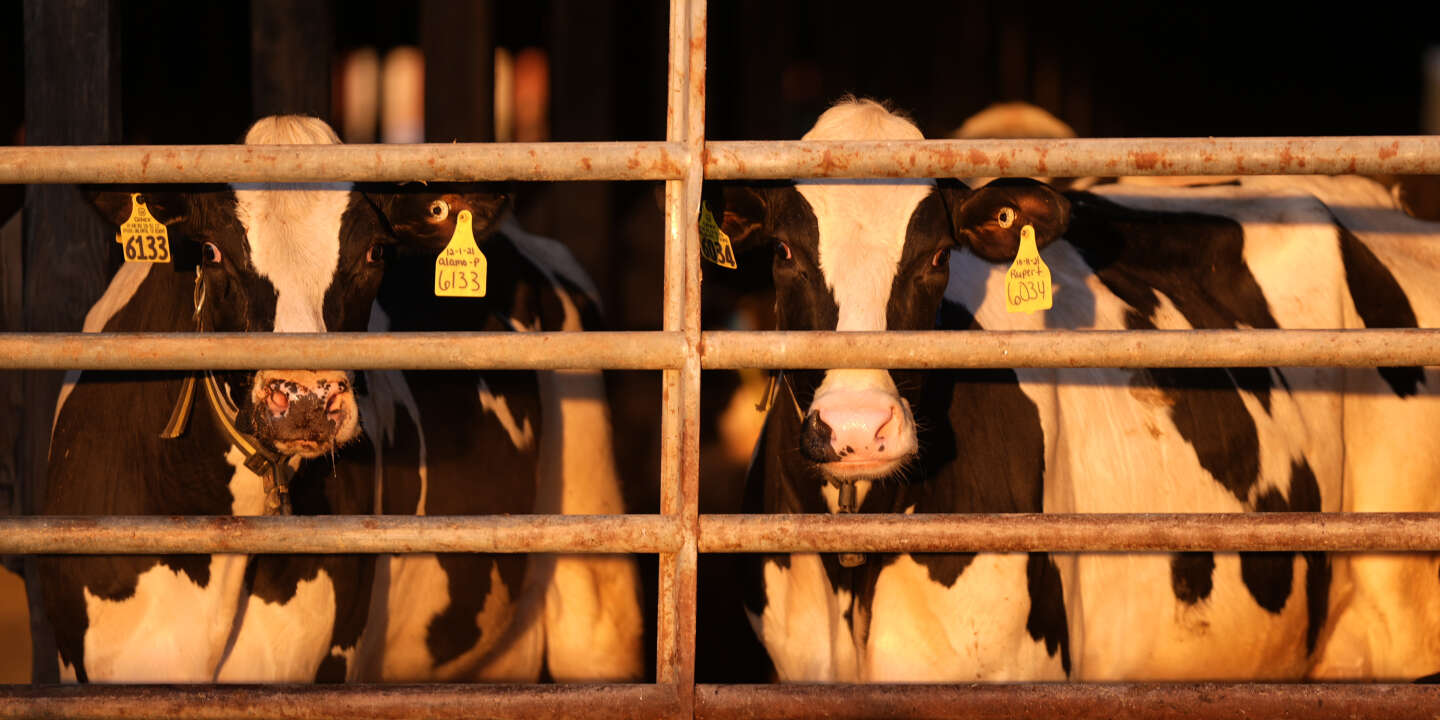Second Case of Avian Influenza in Humans Linked to Epidemic in Cattle Detected in the United States
At the end of April, the US Food and Drug Administration (FDA) confirmed that the milk sold in stores in the United States was “safe,” as the pasteurization process was “effective” in killing the avian influenza virus. The World Health Organization (WHO) had expressed its “huge concern” in mid-April due to the increasing spread of the H5N1 strain of avian influenza to new species. Herds of cattle in at least nine US states are affected by this epidemic.
The Centers for Disease Control and Prevention (CDC) have once again emphasized the importance of precautions for people exposed to sick or potentially infected animals. These individuals should avoid “close, prolonged, and unprotected” contact with these animals, as well as their excrement, or even with raw unpasteurized milk.
Given the high levels of the H5N1 virus in raw milk from infected cows, as well as the extent of the spread of this virus in dairy cows, additional similar cases in humans could be identified. However, “sporadic infections in humans – without ongoing transmission – will not change the risk assessment for the general public,” they added.
The first case of this kind worldwide had been identified on April 1st in Texas. Less than two months after the first case of avian influenza in the United States, a second person was infected in the context of an epidemic of this virus that had spread to cattle herds in the country, health authorities announced on May 22. This person works on a farm where the H5N1 virus has infected cows, in the state of Michigan (North), according to the CDC.
The person infected in Michigan, like the Texan patient, only showed symptoms in the eyes, as stated by the CDC. Experts are concerned about the increasing number of mammals infected with the disease, even though cases in humans remain rare. There is currently no evidence of human-to-human transmission, but scientists fear that a strong circulation could facilitate a virus mutation that makes this type of transmission possible.
The consumption of pasteurized milk is safe. The CDC has warned about the potential risks for the American population, but they believe the risk remains low. In the United States, the health authorities are closely monitoring the situation and taking necessary precautions to prevent further spread of the virus.
Avian Influenza Epidemic in Cattle
The avian influenza epidemic in cattle continues to pose a threat to both animal and human health in the United States. The first case of a human infection related to this epidemic was reported in Texas on April 1st. Since then, the virus has spread to cattle herds in various states, with Michigan being the latest affected state.
The CDC has issued guidelines for individuals working with infected animals to prevent the spread of the virus. Close contact with sick animals, their excrement, or raw unpasteurized milk should be avoided to reduce the risk of transmission. While the risk to the general public is considered low, the CDC is closely monitoring the situation and preparing for any potential developments.
Precautions and Recommendations for Public Safety
As the avian influenza epidemic in cattle continues to unfold, it is crucial for individuals to take necessary precautions to protect themselves and others. Avoiding contact with infected animals and their products, such as raw milk, is essential in preventing the spread of the virus. Health authorities are working diligently to contain the outbreak and ensure public safety amidst this ongoing crisis.
In conclusion, the avian influenza epidemic in cattle poses a significant challenge to public health in the United States. While the risk to the general population remains low, it is important for individuals to remain vigilant and follow recommended guidelines to prevent the further spread of the virus. Stay informed and take necessary precautions to protect yourself and your community from this growing threat.





















